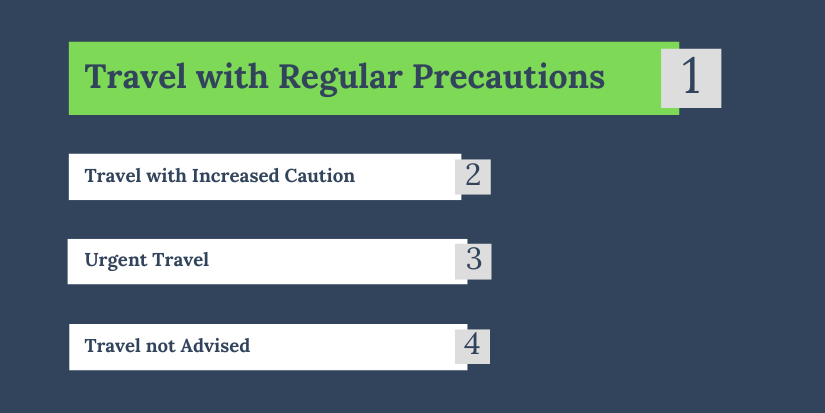
VISA REGIME
For holders of national passports and other travel documents: Visa is not required for stays of up to 90 days
For holders of diplomatic and official passports: Visa is not required for stays of up to 90 days (tourism or transit)
Note: Visa is not required for the holder of an emergency travel document in transit
ENTERING AND LEAVING THE COUNTRY
Citizens of the Republic of Serbia may travel to the Republic of Korea without a visa for stays of up to 90 days. However, before traveling, they must apply for the Korea Electronic Travel Authorization (K-ETA) via the website www.k-eta.go.kr (a mobile K-ETA application is also available). It is recommended to apply at least 72 hours before the planned trip. The processing fee is approximately 7.5 euros, and the K-ETA is valid for three years. Please note that boarding a flight to the Republic of Korea or entering the country is not possible without prior K-ETA approval.
Travelers under the age of 17 and over the age of 65 (on the date of planned entry into the Republic of Korea), as well as holders of diplomatic and official passports of the Republic of Serbia, are exempt from the K-ETA requirement.
Additionally, citizens of the Republic of Serbia are not required to complete the electronic arrival card (e-Arrival Card) if they possess a valid K-ETA for entry into the country.
All travelers are advised to check the latest entry requirements and information for the Republic of Korea well in advance of their planned trip, either via the website of the Embassy of the Republic of Korea in Belgrade (https://overseas.mofa.go.kr/rs-sr/brd/m_7940/list.do) or by directly contacting the Embassy.
SOCIAL SECURITY AGREEMENT
No social security agreement has been concluded.
USEFUL INFORMATION
HEALTH SITUATION — Although health insurance is not required, travel insurance is recommended because the prices of health services are high. The telephone number for emergency services is 119, and the line is open 24 hours a day, and it is free of charge.
Foreigners also have access to the emergency medical information center, which can be obtained by calling 1339. Practical medical advice in English can be obtained from this number. Given the language barrier, the phone number 15 88 56 44 is useful. By dialing this number, you get in touch with a group of volunteers who know several languages (not Serbian) and help to solve any problems of any kind for free.
There is a noticeable tendency of increasing levels of air pollution by the so-called yellow dust. These levels are measured on a daily basis, of which the population is informed through the media and appropriate internet applications. In the case of values that are considered unfavorable for health, it is suggested to wear protective masks, which are cheap and easily accessible (pharmacies, drugstores, shopping malls, airports, bus and train stations).
SECURITY SITUATION — If one must travel to the Korean Peninsula, it is best to avoid staying in the border zone (demilitarised zone). Protests and demonstrations about the military crisis should also be avoided.
TRANSPORT — The Republic of Korea has nine international airports, but the main entrance for visitors from Europe and other overseas countries is Incheon Airport, which is about 65 kilometres away from Seoul.
Temporary entry with a private vehicle is possible only by a ferry, with standard international documents for vehicles and an international driving permit. Traffic regulations are identical to the European ones, and fines for traffic violations are high. The entire city and road traffic is almost completely controlled by cameras and traffic offenders are easily and quickly identified.
Excise goods worth up to 400 US dollars may be imported without customs clearance. Such goods include cameras and other electronic equipment, leather goods, perfumes, jewellery, watches, sports equipment and other personal items. Passengers over the age of 20 have the right to bring 1 litre of alcoholic beverages into the country, and those over the age of 19 have the right to bring 200 cigarettes into the country.
Pets, as well as all types of animal and plant products, must have valid certificates issued by the state authorities of the country of origin upon entry into the Republic of Korea. Vaccination of pets is also required six months before entry as well as a 10-day quarantine.
OTHER INFORMATION — The official currency is the Korean Won. Payment is possible only in the national currency. Due to daily exchange rate changes and the tendency of the won to appreciate against the euro and other currencies, it is useful to check the current exchange rate before travelling.
When it comes to depositing and exporting money in cash, an amount in local currency or foreign currencies equivalent to 10,000 US dollars or more, it is necessary to declare it to the customs authorities upon entering the country. Also, to bring out 10,000 US dollars or more, it is necessary to obtain the prior permission of the Central Bank of Korea. All international payment cards issued in the Republic of Serbia are also valid in the Republic of Korea.
Only the latest generation of mobile phones can support roaming in South Korea, but it is possible to rent a phone quickly and at reasonable prices at the appropriate branches of mobile phone operators at every airport. Information on the websites of the Korean Cultural and Information Service http://www.korea.net, the Korean Tourist Organization http://www.visitkorea.or.kr, and the Korean Trade and Investment Promotion Agency http://www.kotra.or.kr are useful.
Contact information
During your stay in the Republic Korea, for consular assistance and protection, you may contact the Embassy of the Republic of Serbia in Seoul, at the following telephone number: 00 82 2 797 51 09 (fax 00 82 2 790 61 09), and e-mail address: embserbseul@yahoo.com .
